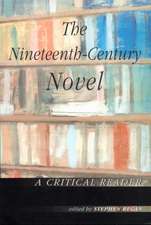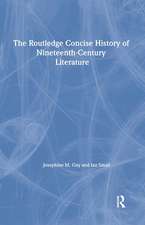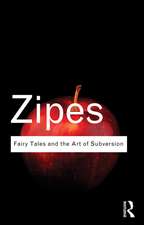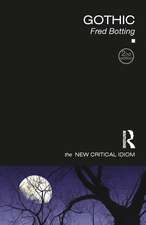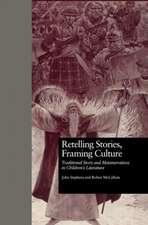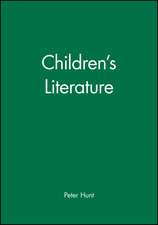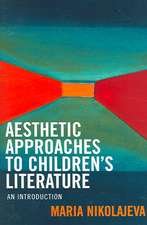Routledge Library Editions: Soviet Economics: Routledge Library Editions: Soviet Economics
Autor Variousen Limba Engleză Hardback – 14 iun 2023
Din seria Routledge Library Editions: Soviet Economics
-
 Preț: 464.84 lei
Preț: 464.84 lei -
 Preț: 232.47 lei
Preț: 232.47 lei -
 Preț: 311.52 lei
Preț: 311.52 lei -
 Preț: 311.96 lei
Preț: 311.96 lei -
 Preț: 308.98 lei
Preț: 308.98 lei -
 Preț: 310.68 lei
Preț: 310.68 lei -
 Preț: 303.90 lei
Preț: 303.90 lei -
 Preț: 308.55 lei
Preț: 308.55 lei -
 Preț: 312.38 lei
Preț: 312.38 lei -
 Preț: 334.85 lei
Preț: 334.85 lei -
 Preț: 336.97 lei
Preț: 336.97 lei -
 Preț: 336.55 lei
Preț: 336.55 lei -
 Preț: 303.47 lei
Preț: 303.47 lei -
 Preț: 347.57 lei
Preț: 347.57 lei -
 Preț: 299.22 lei
Preț: 299.22 lei -
 Preț: 338.24 lei
Preț: 338.24 lei -
 Preț: 334.41 lei
Preț: 334.41 lei -
 Preț: 308.98 lei
Preț: 308.98 lei -
 Preț: 312.38 lei
Preț: 312.38 lei -
 Preț: 308.98 lei
Preț: 308.98 lei -
 Preț: 306.44 lei
Preț: 306.44 lei -
 Preț: 308.13 lei
Preț: 308.13 lei
Preț: 11353.27 lei
Preț vechi: 17511.78 lei
-35% Nou
Puncte Express: 17030
Preț estimativ în valută:
2173.13€ • 2361.30$ • 1826.61£
2173.13€ • 2361.30$ • 1826.61£
Carte tipărită la comandă
Livrare economică 21 aprilie-05 mai
Preluare comenzi: 021 569.72.76
Specificații
ISBN-13: 9781032484662
ISBN-10: 1032484667
Pagini: 6368
Dimensiuni: 156 x 234 mm
Greutate: 11.94 kg
Ediția:1
Editura: Taylor & Francis
Colecția Routledge
Seria Routledge Library Editions: Soviet Economics
Locul publicării:Oxford, United Kingdom
ISBN-10: 1032484667
Pagini: 6368
Dimensiuni: 156 x 234 mm
Greutate: 11.94 kg
Ediția:1
Editura: Taylor & Francis
Colecția Routledge
Seria Routledge Library Editions: Soviet Economics
Locul publicării:Oxford, United Kingdom
Public țintă
Academic, Adult education, General, Postgraduate, Undergraduate Advanced, and Undergraduate CoreCuprins
1. Agricultural Co-operation in the Soviet Union G. Ratner 2. The Communist Economic Challenge David Ingram 3. The Disintegration of the Soviet Economic System Edited by Michael Ellman and Vladimir Kontorovich 4. Economic Trends in Soviet Russia A. Yugoff 5. Energy Reviews: Unified Gas Supply System of the USSR Edited by L.A. Melentiev 6. The Enigma of Soviet Petroleum: Half-Full or Half-Empty? Marshall I. Goldman 7. The Economic Development of the USSR Roger Munting 8. The Impact of Soviet Shipping Simon Bergstrand and Rigas Doganis 9. Labour in Transition Edited by Chris Smith and Paul Thompson 10. The Northern Sea Route and the Economy of the Soviet North Constantine Krypton 11. Russia and America: The Roots of Economic Divergence Colin White 12. The Second Five-Year Plan of Development of the U.S.S.R. W.P. Coates and Zelda K. Coates 13. The Socialist Industrial State David Lane 14. Soviet Agriculture in Perspective Erich Strauss 15. Soviet Central Asia: 'A Tragic Experiment' Boris Z. Rumer 16. The Soviet Economy on the Brink of Reform Edited by Peter Wiles 17. The Soviet Economy: Toward the Year 2000 Edited by Abram Bergson and Herbert S. Levine 18. The Soviet Far East: Geographical Perspectives on Development Edited by Allan Rodgers 19. Soviet Geography: The New Industrial and Economic Distributions of the U.S.S.R. N. Mikhaylov 20. Soviet Management and Labor Relations Bruno Grancelli 21. The Soviet Union Looks Ahead: The Five-Year Plan for Economic Construction 22. Wrecking Activities at Power Stations in the Soviet Union: The Case of N.P. Vitvitsky et al
Descriere
Routledge Library Editions: Soviet Economics examines in 22 volumes the establishment, development, growth and collapse of the Soviet economic system. Titles look at the early five-year plans, the control of all aspects of economic life by the State, changes in agriculture, industrialisation, relations between managers and workers.
Notă biografică
Various authors.
Original Series Editors:
David Canter is Emeritus Professor at The University of Liverpool, UK. Having set up the first MSc in Environmental Psychology at The University of Surrey in 1972, he went on to establish the Journal of Environmental Psychology in 1980, editing it for 20 years. Soon after he founded the International Association of People-Environment Studies (IAPS). David has published widely on many aspects of human interactions with their surroundings; his 1977 book The Psychology of Place, being one of the most cited publications in the area.
David Stea is Professor Emeritus of Geography and International Studies at Texas State University and Research Associate with the Center for Global Justice in Mexico. As Carnegie Interdisciplinary Fellow at Brown University from 1964 to 1966, he developed the new field of Environmental Psychology and the related study of spatial and geographic cognition. David is a member of the editorial boards of a number of journals, the co-author or co-editor of several books and author of some 150 articles and book chapters on various subjects, including sustainable development and environmental issues in Latin America. In 1987 he was nominated for the Right Livelihood Prize (also known as the “alternative Nobel”) for his international work with indigenous peoples.
Original Series Editors:
David Canter is Emeritus Professor at The University of Liverpool, UK. Having set up the first MSc in Environmental Psychology at The University of Surrey in 1972, he went on to establish the Journal of Environmental Psychology in 1980, editing it for 20 years. Soon after he founded the International Association of People-Environment Studies (IAPS). David has published widely on many aspects of human interactions with their surroundings; his 1977 book The Psychology of Place, being one of the most cited publications in the area.
David Stea is Professor Emeritus of Geography and International Studies at Texas State University and Research Associate with the Center for Global Justice in Mexico. As Carnegie Interdisciplinary Fellow at Brown University from 1964 to 1966, he developed the new field of Environmental Psychology and the related study of spatial and geographic cognition. David is a member of the editorial boards of a number of journals, the co-author or co-editor of several books and author of some 150 articles and book chapters on various subjects, including sustainable development and environmental issues in Latin America. In 1987 he was nominated for the Right Livelihood Prize (also known as the “alternative Nobel”) for his international work with indigenous peoples.
Recenzii
“The timely re-issue of the prescient Ethnoscapes series provides an invaluable contribution to current concerns about built and natural environments. The breadth of coverage of these books, includes public participation in environmental modifications, the impact of housing design on the quality of life, cross-cultural comparisons of placemaking, and the role of building aesthetics on well-being, across many countries and contexts adds up to a treasure trove of innovative research. Now more than ever we need the benefit of the insights and findings of these scholars and professional (many of course who are both) who, over three decades, have studied crucial aspects of interactions between people and their surroundings.”
Ricardo García Mira, Professor of Social Psychology, University of A Coruna, Galicia, Spain. Former Spanish MP.
“The reissued volumes in the Ethnoscapes series were ground- breaking when they first appeared and remain fresh today. These books are essential for understanding how design and the use of space has cultural and human meaning that “artificial intelligence” could never achieve. They offer a vital and timely antidote to mind-numbing apology for the appropriation of civic space and corporate reproduction of McMansions and shopping malls.”
Ben Wisner, Honorary Visiting Professor, University College London, UK.
“The physical aspects of our wonderfully complex world combine with social and psychological factors, to give a myriad of joys and sorrows accompanying our lifeworld activities. To make existence manageable, we need to find order within such chaos. As researchers of all types, but especially social scientists, we are driven to identify networks of causes and effects. This series provides excellent examples of such writing, concerning natural and built environments, from a host of scholars, representing a range of disciplines.”
Andrew Turk, Adjunct Associate Professor, Murdoch University, Western Australia.
“People interested and concerned about how we are interacting with and shaping our built and natural environments will find the insights and findings in this re-issued Ethnoscapes series of great value. Over more than 30 years this accumulated cornucopia of research reveals how important it is to understand the meanings and significance of many aspects of human- environment transactions. These include studies of user involvement in design, with its implications for place-making, as well as crucial explorations of the meaning of home and the role of environmental aesthetics for our wellbeing. Every volume opens new doors, often being the forerunners to major areas of study.”
Arza Churchman, Professor Emerita at Technion- Israel Institute of Technology, Haifa, Israel.
“The re-issue of the Ethnoscapes series provides everyone who cares about human-environment studies a wonderful opportunity to re-acquaint themselves with many groundbreaking efforts in the field. The series provides a wide range of explorations by researchers who have helped to make sense of persons in interaction with their surroundings, and contributed to inspired placemaking”.
Robert Gifford, Professor of Psychology and Environmental Studies, University of Victoria, British Columbia, Canada.
Ricardo García Mira, Professor of Social Psychology, University of A Coruna, Galicia, Spain. Former Spanish MP.
“The reissued volumes in the Ethnoscapes series were ground- breaking when they first appeared and remain fresh today. These books are essential for understanding how design and the use of space has cultural and human meaning that “artificial intelligence” could never achieve. They offer a vital and timely antidote to mind-numbing apology for the appropriation of civic space and corporate reproduction of McMansions and shopping malls.”
Ben Wisner, Honorary Visiting Professor, University College London, UK.
“The physical aspects of our wonderfully complex world combine with social and psychological factors, to give a myriad of joys and sorrows accompanying our lifeworld activities. To make existence manageable, we need to find order within such chaos. As researchers of all types, but especially social scientists, we are driven to identify networks of causes and effects. This series provides excellent examples of such writing, concerning natural and built environments, from a host of scholars, representing a range of disciplines.”
Andrew Turk, Adjunct Associate Professor, Murdoch University, Western Australia.
“People interested and concerned about how we are interacting with and shaping our built and natural environments will find the insights and findings in this re-issued Ethnoscapes series of great value. Over more than 30 years this accumulated cornucopia of research reveals how important it is to understand the meanings and significance of many aspects of human- environment transactions. These include studies of user involvement in design, with its implications for place-making, as well as crucial explorations of the meaning of home and the role of environmental aesthetics for our wellbeing. Every volume opens new doors, often being the forerunners to major areas of study.”
Arza Churchman, Professor Emerita at Technion- Israel Institute of Technology, Haifa, Israel.
“The re-issue of the Ethnoscapes series provides everyone who cares about human-environment studies a wonderful opportunity to re-acquaint themselves with many groundbreaking efforts in the field. The series provides a wide range of explorations by researchers who have helped to make sense of persons in interaction with their surroundings, and contributed to inspired placemaking”.
Robert Gifford, Professor of Psychology and Environmental Studies, University of Victoria, British Columbia, Canada.







